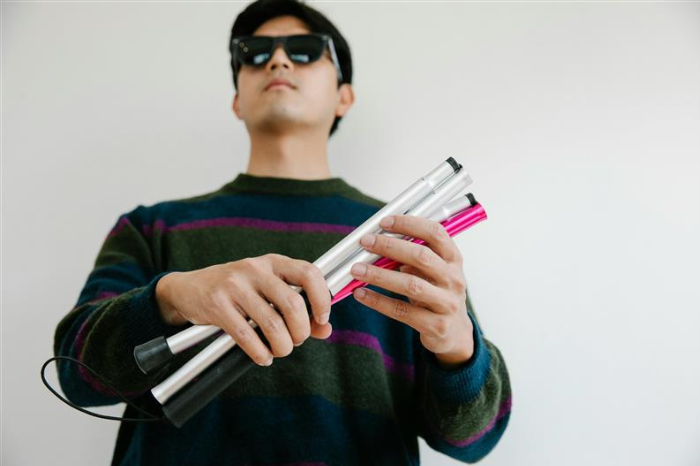
Most people know the National Disability Insurance Scheme (NDIS) funds services like support work and allied health therapies, but did you know it can also cover the cost of assistive technologies and other products that make life just that little bit simpler?
Known as ‘consumables’, these items help people to manage their disability-related needs – and they can include anything from specialised clothing and equipment for eating and drinking, to non-slip bathmats, sensory products, and writing aids.
‘Consumables’ is also the name of a category of NDIS funding that a large number of participants have included in their plans. It sits under the Core Supports budget, has a good degree of flexibility, and includes thousands of products. Among the most commonly claimed items are:
With a huge range of products available to support people with disability to lead more independent lives, we’re lifting the lid on consumables to help you put your NDIS funding to best use. And better still, we’re giving you the inside scoop on how to ensure trouble-free processing of payments for every item you order.
Your Core Supports budget is flexible, meaning that even if you don’t have consumables funding specifically included in your plan, you’ll usually be able to claim for low risk items under $1500 without allied health reports or other documentation – if the products are related to your disability and not funded by a different government service.
Low risk means there’s little chance of harm when the product is used in everyday life, it isn’t something you need professional advice in order to use safely, it doesn’t need customisation or modification, and it’s available for sale to the general public.
If you’re not sure if you have consumables funding – or if you’re still not clear about whether you can claim for a purchase under $1500 – answering yes to the questions below is usually a good indicator that your invoice will covered by the NDIS.
If you answered ‘yes’ to all of the above, it’s likely the product you’re wanting to buy will be approved.
But before you make a purchase or place an order, you also need to find out if the support is one that should be funded by another government service (e.g., dental, health or hospital services, education, housing and public transport).
The NDIS will fund some supports, such as disability-related health services, where they relate directly to the participant’s disability and where that disability impacts their daily life. But before you commit to buying, it’s always best to check whether a payment will be processed, so give us a call or get in touch with the National Disability Insurance Agency (NDIA).
If the consumables or assistive technology you want to buy aren’t under $1500 – or if the item you want isn’t considered to be low risk – there are several other NDIA rules and requirements you’ll need to address, and you may need a letter of recommendation from an allied health provider as well.
Allied health providers include occupational therapists, speech pathologists, physiotherapists and podiatrists – professionals who provide services like diagnosis, treatment, support, and rehabilitation.
It’s best to speak with your plan manager, support coordinator or NDIA partner to find out whether you have the funding you need – and to better understand the Agency’s requirements – before you make any purchases.
We know – sometimes a letter of recommendation can cost more than the item you want to purchase, and that can leave you scratching your head in wonder at why it’s even necessary. But on the other side of that debate are the rejected claims and invoices from participants who didn’t take the advice of the professionals who support them.
Your NDIS funding is precious, and you need to make every dollar count. That’s why many of our clients see allied health professionals for assessments and recommendations before engaging supports, commencing therapies, and purchasing products they think will help them to work towards their NDIS plan goals.
Your allied health professionals are part of your support network, and their advice is invaluable when it comes to deciding how best to build your capacity and grow your independence.
If there are consumables and assistive technology they suggest you use, ask them to explain how the products will help you to manage your disability, and ask for a letter of recommendation that explains what the support is, why you need it, and how it aligns with your goals.
This approach means that whatever you spend your funding on will truly add value to your life, and in addition to putting forward a professional recommendation to evidence the reasons for the purchase, your allied health professionals will also develop strategies and plans to help you use it.
As an example, if an NDIS participant has difficulty with sensory stimulation on public transport, their occupational therapist may recommend strategies to manage the challenges they face – such as planning trips in advance and purchasing noise cancelling headphones to wear when travelling. Then, the therapist will include the details of the strategy and the required tools to implement it in their letter of recommendation to the NDIA in support of the purchase of the headphones.
If you’re unsure if the NDIS will fund a particular item you want to claim, it’s best to have a conversation with us. We can advise you if the NDIA is likely to accept the claim or ask for more information.
Sometimes it’s difficult to understand the NDIA’s decisions about funding – decisions the Agency makes based on a wide range of factors, such as a person’s disability support needs, their living arrangements, and the availability of informal supports.
We explain more about the NDIA’s reasonable and necessary criteria here.
If you have any questions about consumables or using your NDIS funding, we’re here to help. You can email us at [email protected] or call us on 1800 861 272 from 8am-6pm (SA time), Monday to Friday.


